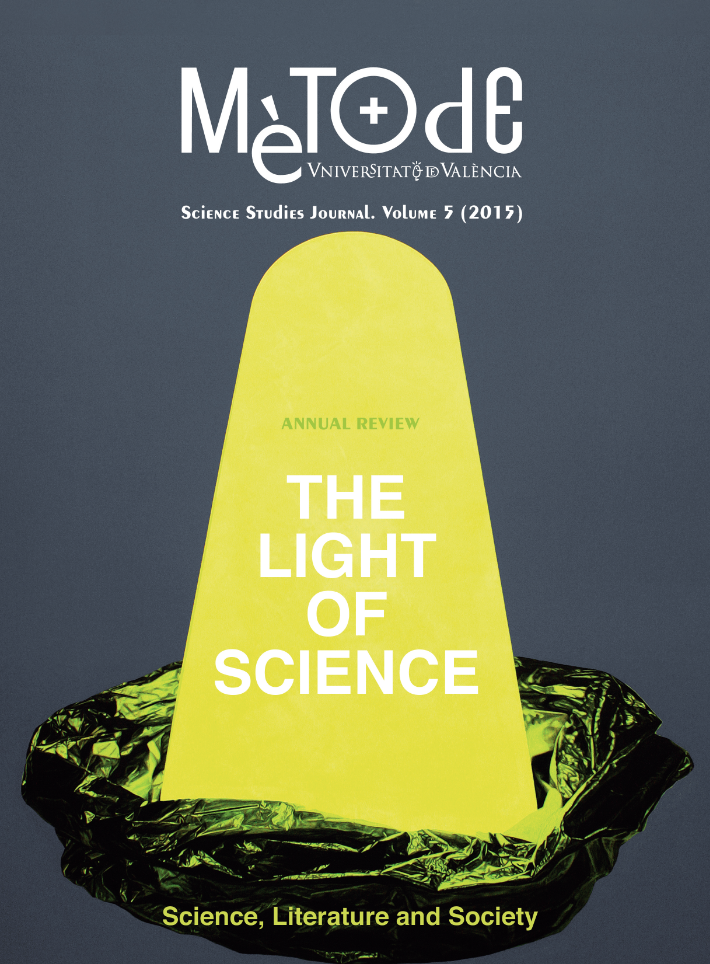Science novels: Science and technology in fiction
DOI:
https://doi.org/10.7203/metode.0.3731Keywords:
Jules Verne, science fiction, literature, science novel Abstract
Abstract
Most literature frequently ignores the essential role that science and modern technology play in shaping current societies and how we live in them. Around 150 years ago, Jules Verne started to become aware of the need to actively include science and technology in modern narratives. He named it «the science novel». Later, the literary genre of science fiction seemed to reach the point which Jules Verne’s science novel had pioneered. In this regard, science fiction posits itself as a suitable narrative to learn about the future, as it describes worlds which are possible due to science and technology.
 Downloads
Downloads
 References
References
Aldiss, B. W. and D. Wingrove, 1986. Trillion Year Spree: The History of Science Fiction. Victor Gollancz. London.
Asimov, I., 1977. Asimov on Science Fiction. New Doubleday. New York.
Barceló, M., 1990. Ciencia ficción: guía de lectura. Ediciones B. Barcelona.
Barceló, M., 2000. Paradojas: ciencia en la ciencia ficción. Equipo Sirius. Madrid.
Navarro, J., 2005. Somnis de ciència: un viatge al centre de Jules Verne. Bromera/PUV. Alzira/Valencia.
Nicholls, P. (ed.), 1983. The Science in Science Fiction. Alfred A. Knopf. New York.
Toffler, A., 1970. El shock del futuro. Plaza y Janés. Barcelona.
Downloads
Published
How to Cite
-
Abstract946
-
PDF (Català)419
-
PDF (Español)935
-
PDF184
Issue
Section
License
![]()
All the documents in the OJS platform are open access and property of their respective authors.
Authors publishing in the journal agree to the following terms:
- Authors keep the rights and guarantee Metode Science Studies Journal the right to be the first publication of the document, licensed under a Creative Commons Attribution-NonCommercial-NoDerivatives 4.0 International License that allows others to share the work with an acknowledgement of authorship and publication in the journal.
- Authors are allowed and encouraged to spread their work through electronic means using personal or institutional websites (institutional open archives, personal websites or professional and academic networks profiles) once the text has been published.





